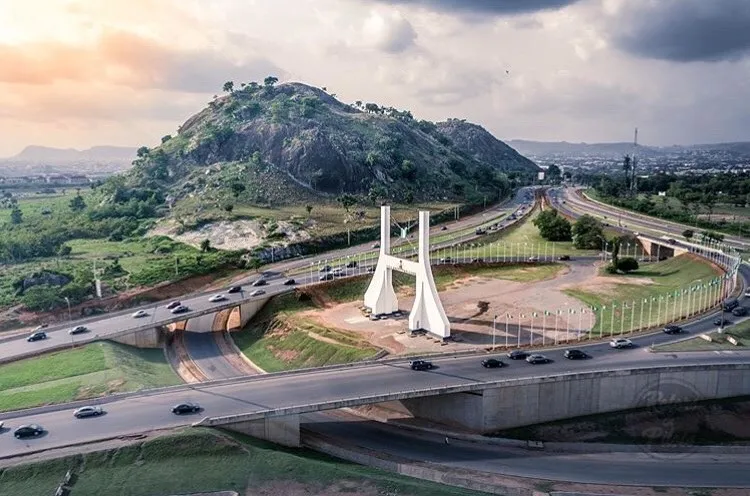
Kidnapping Booms in Abuja as Tinubu Fails to Secure Nigeria, Turning the Capital into a Criminal Haven

Once regarded as one of Nigeria’s safest cities, the Federal Capital Territory (FCT), Abuja, is now facing a rise in insecurity, particularly kidnappings and bandit attacks, since President Bola Tinubu assumed office in 2023. The worsening security situation has caused fear among residents and dealt a heavy blow to the local economy.
In just the first week of 2024, 15 people were abducted in two major incidents. On January 2, gunmen stormed Zuma 1 in Bwari Area Council, kidnapping seven members of a single family, killing one person, and wounding two police officers during a rescue attempt. Five days later, another nine victims, including a mother, her four children, a receptionist, and a barman, were seized from Sagwari Layout Estate, also in Bwari. The perpetrators, often described as heavily armed bandits operating in groups of 10 to 50 and sometimes wearing military uniforms, are increasingly targeting satellite towns where many Abuja residents live.
The problem is not new, but it is escalating. In 2024 alone, at least 87 people were killed and 176 kidnapped in the FCT. Between October and December 2023, 13 kidnapping incidents accounted for 80 victims. Ransom demands remain lucrative, and reports confirm that about ₦653.7 million was paid between 2021 and 2022.
According to SBM Intelligence, Abuja now ranks as the 11th city in Nigeria with the highest frequency of abductions. The fear of kidnapping has depressed business activity, with revenue falling by an estimated 33 per cent. This has also resulted in increased transport and food prices, and a decrease in real estate patronage in affected areas.
Insecurity has not been limited to kidnappings. An improvised explosive device (IED) was detonated at a school on the city’s outskirts, killing two handlers and injuring two others in January. In April, a clash between security forces and members of the Shiite Muslim group on International Quds Day left six people dead, including one security officer, and led to 19 arrests. Even high-security districts have been affected; the official residence of Ghana’s Ambassador to Nigeria, located in the high-security Maitama district, was also burgled in early July, with valuables stolen.
Inspector General of Police Kayode Egbetokun has since launched a Special Intervention Squad (SIS) for the FCT, while newly appointed Police Commissioner Bennett Igweh has directed tactical units to root out criminal camps. Wike has also pressed area councils to form vetted vigilante groups and supplied them with motorcycles to access remote terrain.
Despite these measures, scepticism persists. Some residents accuse security agencies of ignoring actionable intelligence and allege that certain bandit informants are released repeatedly after arrest. Others speculate that some gang leaders enjoy political protection, making them difficult to apprehend.
While President Tinubu and FCT Minister Nyesom Wike have publicly acknowledged the security challenges and pledged action, their efforts have yet to yield any results. Wike, upon assuming office in August 2023, promised to improve FCT security under Tinubu’s mandate, stating that “security has gone down” and that he was ready to provide necessary logistics to security agencies.
However, the FCT Minister’s focus has been on seizing hectares of land worth billions for his family and young children rather than putting measures in place to secure the lives and properties in the federal capital.
Though Tinubu himself has called for “synergy and cooperation among all security agencies” to combat criminality, he has shown little to no effort to enhance the Nigeria Police Force’s capacity, welfare, equipment, and training. The persistent increase in attacks suggests a disconnect between these commitments and the on-ground reality.
For many in Abuja, the government’s words now sound empty. As kidnappers tighten their grip on the capital, leadership at the top looks weak and disconnected. Unless Tinubu and Wike deliver more than press statements, Abuja risks becoming a city where bandits call the shots, and ordinary people pay the price.
About The Author
Related Articles
Asake Sets New Billboard Afrobeats Record as Chart Presence Grows
Asake has further cemented his place as one of Afrobeats’ most dominant...
ByWest Africa WeeklyJanuary 29, 2026Nigerians Lament PayPal’s Return as Old Wounds Resurface
PayPal’s reentry into Nigeria through a partnership with local fintech company Paga...
ByWest Africa WeeklyJanuary 29, 2026Tanzania Eyes Gold Sales as Aid Declines and Infrastructure Needs Grow
Tanzania is weighing plans to sell part of its gold reserves to...
ByWest Africa WeeklyJanuary 29, 2026Mali Tightens Grip on Explosives Supply With New Majority Stake
The Malian government has taken majority ownership of a civil explosives manufacturing...
ByWest Africa WeeklyJanuary 29, 2026












Leave a comment